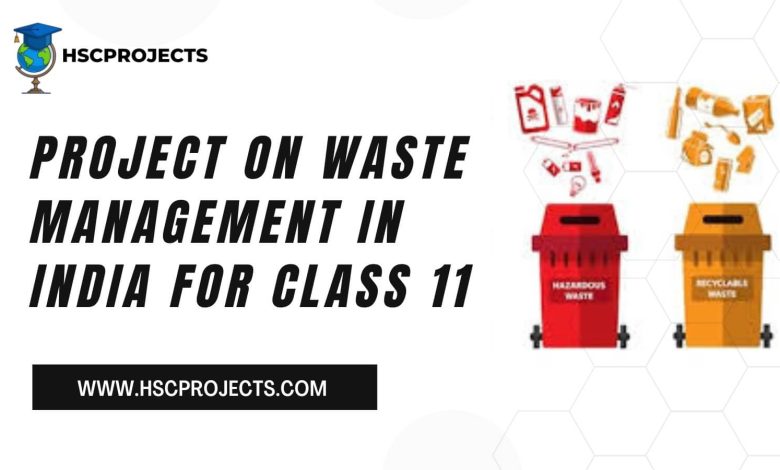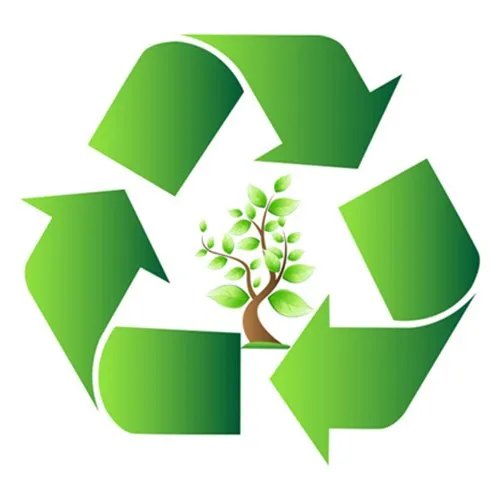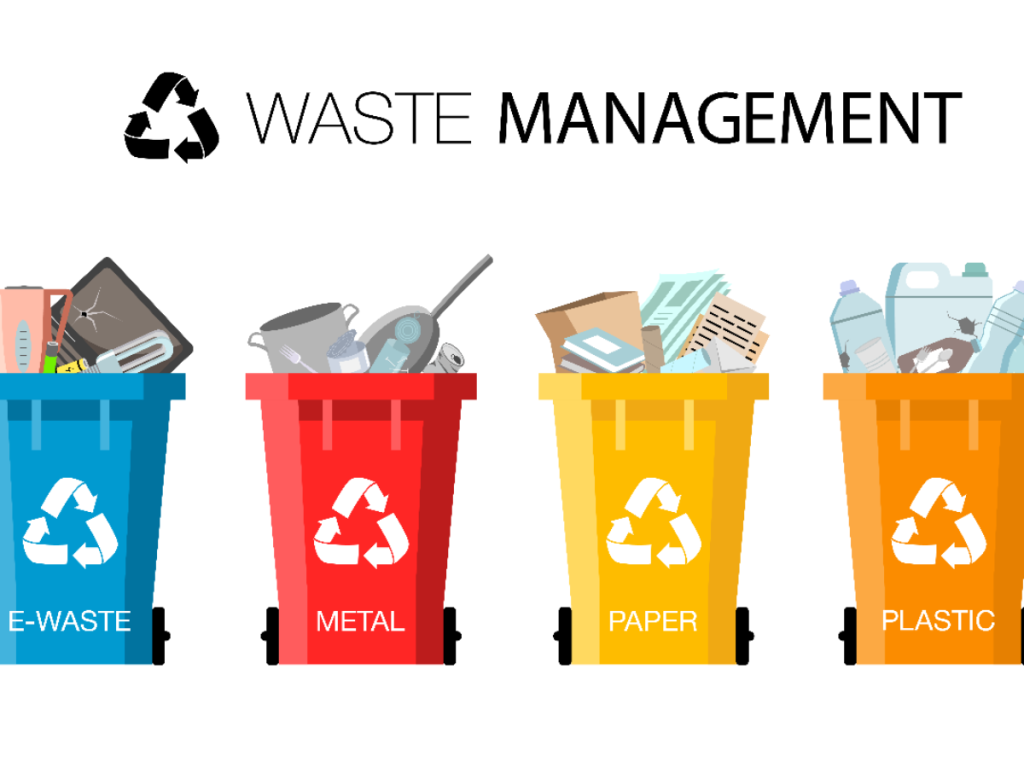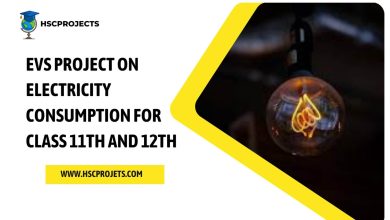
Project On Waste Management In India For Class 11
Acknowledgement:
I extend my sincerest appreciation and heartfelt gratitude to my esteemed teacher, [Teacher’s Name], for their unwavering support and invaluable guidance during the course of this project on waste management in India. Their mentorship and encouragement have been a source of inspiration, propelling me forward in my quest to understand and address this pressing environmental issue.
Throughout this project, [Teacher’s Name] has demonstrated an exceptional commitment to fostering our intellectual growth and instilling in us a passion for responsible research. Their profound expertise in the field of waste management has enriched my understanding and shaped the direction of this work.
I am indebted to [Teacher’s Name] for sparing no effort in providing constructive feedback and thought-provoking insights, which have significantly elevated the quality of this project. Their patience, approachability, and willingness to clarify my doubts have been instrumental in overcoming the challenges that emerged during the research process.
Furthermore, I am grateful for the opportunities [Teacher’s Name] provided for open discussions and brainstorming sessions, allowing me to explore diverse perspectives and refine the ideas presented in this project. Their support has given me the confidence to delve deeper into the complexities of waste management in India and propose potential solutions.
I also acknowledge the immense dedication of [Teacher’s Name] in nurturing an environment that fosters curiosity and critical thinking. Their passion for sustainable development and waste management has been contagious, motivating me to explore this subject matter with greater enthusiasm.
I would also like to extend my appreciation to my fellow classmates who provided constructive feedback and engaged in insightful discussions, enriching the overall experience of working on this project.
Lastly, I would like to express my gratitude to my parents and family for their unwavering support, understanding, and encouragement throughout this journey.
In conclusion, this project on waste management in India would not have been possible without the unwavering guidance, encouragement, and support of [Teacher’s Name] and the collective contributions of various individuals who believed in my capabilities. It has been an enriching and transformative experience, one that I will carry with me throughout my academic and personal endeavors.
Introduction:
Waste management has emerged as one of the most pressing environmental challenges in India, owing to its ever-expanding population and rapid urbanization. As urban centers swell and industrial activities flourish, the sheer volume of waste generated has reached alarming proportions, posing serious threats to the environment, public health, and the country’s natural resources. This project delves into the multifaceted issue of waste management in India, shedding light on its complexities and seeking viable solutions to mitigate its adverse impacts.
With a population exceeding 1. 3 billion and a booming economy, India’s consumption patterns have surged, resulting in an exponential rise in waste generation. Municipal solid waste, industrial waste, agricultural residue, and electronic waste constitute a significant portion of the waste stream, further exacerbating the challenge of effective waste management.
The consequences of improper waste disposal are far-reaching. Environmental degradation is one of the most evident outcomes, as uncontrolled waste dumping contaminates soil, water bodies, and the atmosphere. The pollution caused by leachate and hazardous chemicals from landfills poses grave threats to both terrestrial and aquatic ecosystems, disrupting delicate ecological balances.
Beyond environmental concerns, the detrimental effects of inadequate waste management extend to public health. The accumulation of waste attracts disease-carrying vectors, leading to the spread of infections and posing health hazards to nearby communities. Moreover, the unregulated burning of waste releases toxic fumes and particulate matter, contributing to air pollution and respiratory ailments.
India’s resources are also under strain due to poor waste management practices. Many items discarded as waste could be reclaimed, recycled, or reused, preserving valuable resources and reducing the demand for raw materials. The lack of efficient waste segregation and recycling infrastructure results in the loss of these resources and hampers sustainable development.
This project sets out on a journey to comprehend the current state of waste management in India, with a comprehensive analysis of the existing systems, challenges faced, and the stakeholders involved. Through this exploration, we seek to gain insights into the diverse factors that contribute to the waste management crisis.
Moreover, this project aims to propose effective strategies and solutions to address this complex issue. By examining successful waste management models from around the world and considering the unique socio-economic and cultural aspects of India, we aspire to formulate sustainable and context-specific approaches.
In conclusion, waste management in India is a multifaceted and critical challenge that requires immediate attention and concerted efforts. Through this project, we endeavor to contribute to the growing body of knowledge surrounding waste management and inspire actionable steps towards a cleaner, healthier, and more sustainable future for India. By fostering a greater understanding of waste management’s intricacies and advocating for responsible waste practices, we hope to make a meaningful impact in preserving our environment and ensuring the well-being of our society.

Project on Waste Management in India:
India’s rapid economic growth and burgeoning population have led to a staggering increase in waste generation, making waste management a critical concern for the nation. This project undertakes a comprehensive analysis of waste management practices in India, examining the three major waste streams: municipal solid waste, industrial waste, and biomedical waste.
Municipal Solid Waste (MSW):
Municipal solid waste refers to the everyday waste generated from households, commercial establishments, and institutions. With urbanization on the rise, the quantity of MSW has soared, straining existing waste management systems. The project investigates the collection, transportation, and disposal methods employed by various municipalities and regions. It evaluates the efficiency and coverage of waste collection services, as well as the segregation practices at the source. The challenges associated with unsegregated waste, inadequate infrastructure, and illegal dumping sites are thoroughly examined.
Industrial Waste:
The industrial sector is a significant contributor to waste generation in India. Various industries produce diverse forms of waste, ranging from hazardous and toxic materials to non-hazardous waste. This project delves into the waste management practices of key industries, including manufacturing, mining, chemical, and electronic sectors. It evaluates the compliance of industries with environmental regulations and their efforts to minimize waste generation. The project also explores the possibilities of industrial symbiosis, where one industry’s waste becomes a valuable resource for another.
Biomedical Waste:
With a burgeoning healthcare sector, the proper management of biomedical waste has become increasingly crucial. This project assesses the handling, segregation, treatment, and disposal of biomedical waste from hospitals, clinics, and research institutions. It analyzes the potential health risks associated with improper biomedical waste management and explores sustainable alternatives for waste treatment, such as autoclaving, incineration, or non-burn technologies.
Highlighting Challenges and Shortcomings:
Through an in-depth study of waste management practices in India, this project identifies the significant challenges and shortcomings faced in dealing with the mounting waste. These challenges may include:
Inadequate Infrastructure: Many regions lack proper waste management infrastructure, such as waste treatment plants, recycling facilities, and waste-to-energy units.
Lack of Public Awareness: Insufficient awareness among the public regarding waste segregation, recycling, and responsible waste disposal hinders effective waste management.
Limited Financial Resources: Municipalities and local authorities often struggle with budget constraints to invest in modern waste management infrastructure and technologies.
Enforcement and Compliance: The enforcement of waste management regulations and ensuring compliance among industries and individuals can be challenging.
Technological Gaps: The lack of advanced waste management technologies and innovations limits efficient waste processing and resource recovery.
By highlighting these challenges, the project seeks to raise awareness and emphasize the urgency of addressing waste management issues in India.
In conclusion, this project on waste management in India undertakes a comprehensive assessment of waste practices across various sectors, shedding light on the challenges faced and the shortcomings in existing systems. By understanding the complexities of waste management in India, we aim to contribute to the development of sustainable and efficient waste management strategies, advocating for a cleaner and healthier environment for the country and its inhabitants.

Importance of Waste Management in India:
Proper waste management is essential for several reasons:
Environmental Protection: Uncontrolled waste disposal contaminates soil and water sources, contributing to environmental pollution and ecosystem degradation.
Public Health: Improper waste management attracts disease-carrying pests and poses health risks to the population.
Resource Conservation: Waste contains valuable resources that can be recycled and reused, reducing the need for raw materials and conserving natural resources.
Sustainable Development: Implementing effective waste management practices aligns with sustainable development goals and promotes a cleaner, healthier environment for future generations.

How Can We Make It Happen?
Achieving effective waste management in India requires a multi-faceted approach:
Awareness and Education: Educating the public about waste segregation, recycling, and responsible consumption is crucial to fostering a waste-conscious society.
2Government Initiatives: The government should invest in modern waste treatment facilities, enforce regulations, and encourage public-private partnerships for better waste management.
Community Participation: Involving local communities in waste management programs fosters a sense of responsibility and ownership in waste reduction efforts.
Innovative Technologies: Implementing innovative technologies for waste processing, such as biogas plants and waste-to-energy systems, can help manage waste efficiently.
Three Pillars of Waste Management:
a. Reduce: Emphasize the importance of reducing waste generation through conscious consumption, eco-friendly products, and packaging.
b. Reuse: Encourage the reuse of products and materials whenever possible to extend their lifecycle and reduce waste.
c. Recycle: Establish and promote robust recycling systems to convert waste materials into valuable resources.
Conclusion:
The issue of waste management in India is undeniably complex and requires urgent and collective action. Throughout this project, we have gained a deep understanding of the challenges posed by the escalating waste generation and its detrimental impact on the environment, public health, and natural resources. However, amid these challenges, we have also identified promising avenues and solutions to address this critical concern.
To effectively tackle waste management in India, we must adopt the three pillars of waste management: reduce, reuse, and recycle. By reducing waste at its source through conscious consumption and adopting eco-friendly practices, we can significantly curtail the volume of waste generated. Emphasizing the importance of reusing products and materials whenever possible can prolong their lifespan, reducing the burden on disposal systems. Recycling, too, plays a pivotal role in conserving resources, as it transforms waste into valuable raw materials for new products.
Education and awareness play an indispensable role in transforming waste management practices in India. By imparting knowledge about waste segregation, responsible waste disposal, and the benefits of recycling, we can foster a waste-conscious society. Engaging in public outreach and awareness campaigns can empower individuals and communities to actively participate in waste reduction efforts, making them integral stakeholders in the journey towards a cleaner and greener India.
Furthermore, the government plays a crucial role in waste management through policy formulation, enforcement, and infrastructure development. Investing in modern waste treatment facilities, encouraging research and innovation in waste management technologies, and promoting public-private partnerships can significantly improve waste management across the country. Implementing stringent regulations and ensuring compliance with waste disposal guidelines will enhance accountability and drive positive change.
It is crucial to recognize that waste management is not solely the responsibility of any single entity; rather, it is a collective endeavor involving individuals, communities, industries, and the government. Each stakeholder must play their part in preserving our environment for future generations. As citizens, we must embrace a more sustainable lifestyle and support initiatives aimed at waste reduction and recycling. Local communities can actively participate in waste management programs and advocate for better waste collection and disposal services.
In conclusion, let us seize this moment to embark on a journey towards a cleaner and greener India. By adopting sustainable waste management practices, raising awareness, and working together as a unified force, we can create a positive impact and safeguard our environment for the well-being of current and future generations. As we take action today, we sow the seeds for a better tomorrow, where waste is viewed not as a burden, but as a valuable resource to be harnessed responsibly. Together, we can build a sustainable future and leave a lasting legacy of environmental stewardship for the generations to come.
Certificate of Completion
[Student’s Name][Class/Grade Level]This is to certify that I, [Student’s Name], a [Class/Grade Level] student, have successfully completed the project on “Project On Waste Management In India For Class 11.” The project explores the fundamental principles and key aspects of the chosen topic, providing a comprehensive understanding of its significance and implications.
In this project, I delved into in-depth research and analysis, investigating various facets and relevant theories related to the chosen topic. I demonstrated dedication, diligence, and a high level of sincerity throughout the project’s completion.
Key Achievements:
Thoroughly researched and analyzedProject On Waste Management In India For Class 11.
Examined the historical background and evolution of the subject matter.
Explored the contributions of notable figures in the field.
Investigated the key theories and principles associated with the topic.
Discussed practical applications and real-world implications.
Considered critical viewpoints and alternative theories, fostering a well-rounded understanding.
This project has significantly enhanced my knowledge and critical thinking skills in the chosen field of study. It reflects my commitment to academic excellence and the pursuit of knowledge.
Date: [Date of Completion]Signature: [Your Signature] [School/Institution Name][Teacher’s/Examiner’s Name and Signature]
In order to download the PDF, You must follow on Youtube. Once done, Click on Submit
Follow On YoutubeSubscribed? Click on Confirm
Download Project On Waste Management In India For Class 11 PDF






